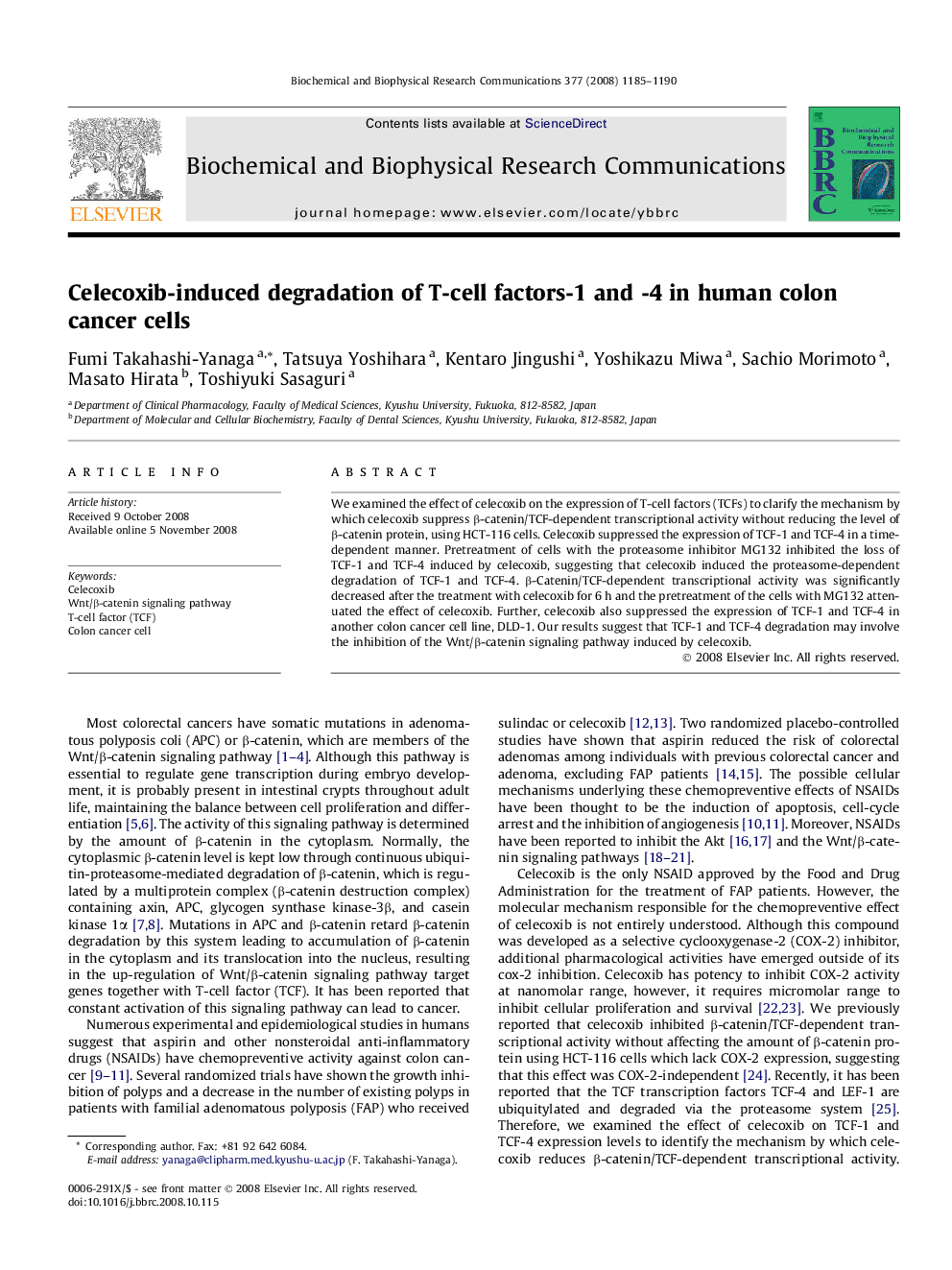| Article ID | Journal | Published Year | Pages | File Type |
|---|---|---|---|---|
| 1934101 | Biochemical and Biophysical Research Communications | 2008 | 6 Pages |
We examined the effect of celecoxib on the expression of T-cell factors (TCFs) to clarify the mechanism by which celecoxib suppress β-catenin/TCF-dependent transcriptional activity without reducing the level of β-catenin protein, using HCT-116 cells. Celecoxib suppressed the expression of TCF-1 and TCF-4 in a time-dependent manner. Pretreatment of cells with the proteasome inhibitor MG132 inhibited the loss of TCF-1 and TCF-4 induced by celecoxib, suggesting that celecoxib induced the proteasome-dependent degradation of TCF-1 and TCF-4. β-Catenin/TCF-dependent transcriptional activity was significantly decreased after the treatment with celecoxib for 6 h and the pretreatment of the cells with MG132 attenuated the effect of celecoxib. Further, celecoxib also suppressed the expression of TCF-1 and TCF-4 in another colon cancer cell line, DLD-1. Our results suggest that TCF-1 and TCF-4 degradation may involve the inhibition of the Wnt/β-catenin signaling pathway induced by celecoxib.
